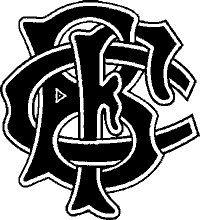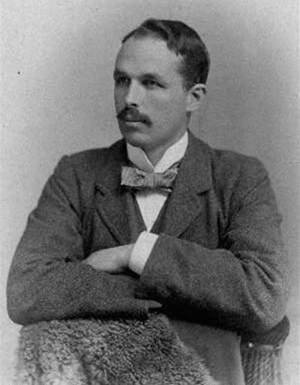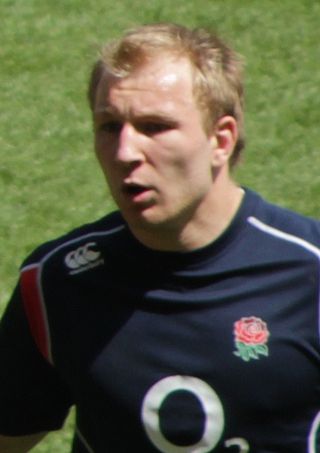
Barry John was a Welsh rugby union fly-half who played in the 1960s and early 1970s during the amateur era of the sport. John began his rugby career as a schoolboy playing for his local team Cefneithin RFC before switching to the first-class west Wales team Llanelli RFC in 1964. Whilst at Llanelli, John was selected for the Wales national team—as a replacement for David Watkins—to face a touring Australian team.

The Barbarian Football Club, known as the Barbarians, is a British-based invitational rugby union club. The Barbarians play in black and white hoops, though players wear socks from their own club strip. Membership is by invitation. As of 2011, players from 31 countries had played for them. Traditionally at least one uncapped player is selected for each match.

Christopher Douglas Paterson, MBE is an ambassador and specialist coach for the Scotland and Edinburgh rugby union teams. He is a former professional rugby union player who played for Scotland and, for the most part of his career, Edinburgh. Paterson is Scotland's record points scorer with 809 points and second most-capped player with 109 caps. He was capable of playing in a range of positions, including fullback, wing and fly-half.
James David Simpson-Daniel is a former English rugby union footballer who played wing or centre for Gloucester Rugby.

Dwayne John Peel is a Welsh rugby union coach and former player. He was the most capped scrum-half for the Wales national rugby union team with 76 caps, until his record was surpassed by Mike Phillips on 16 March 2013.

Thomas Michael Dunstan Voyce was an English rugby union player who played at wing or fullback. He was capped by England.

Quinton James Cowan is a New Zealand rugby union footballer. He first played for the All Blacks – New Zealand's national team – during the 2004 tour to the United Kingdom and France, and played his last Test match for the side during the 2011 Rugby World Cup. Cowan was born in Gore and attended Gore High School. After he left school a strong season for the Mataura Rugby Club saw him selected to play provincially for the Southland Stags in 2000. He was selected for the Highlanders in the 2003 Super 12 season, and continued to play for both the Highlanders and Southland until signing for Gloucester in 2012.

Edgar Roberts Mobbs (1882–1917) was an English rugby union footballer who played for and captained Northampton R.F.C. and England. He played as a three quarter. Mobbs is commemorated in the Ella-Mobbs Trophy, first competed for by the Australia and England rugby union teams in the 2022 series.
The 1898 Home Nations Championship was the sixteenth series of the rugby union Home Nations Championship. Five matches were played between 5 February and 2 April 1898. It was contested by England, Ireland, Scotland and Wales.
Donald Rutherford was an England international rugby union player and administrator. He was the first ever Technical Director of the Rugby Football Union at Twickenham, becoming Director of Rugby where he served with distinction from 1969 – 1999.

Greig Laidlaw is a Scottish former professional rugby union player who played as a scrum-half and as a fly-half. Laidlaw holds the record for most caps as captain, 39, of the Scottish national team. He also represented the British & Irish Lions in 2017.

Frederic Hodgson Rudd Alderson was an English international rugby union threequarter who played club rugby for Cambridge University and Hartlepool Rovers. Alderson played international rugby for England and was an original member of invitational team, the Barbarians.

Philip Froude Hancock universally known as Froude Hancock was an English rugby union forward who played international rugby for the British Isles XV on two tours, the 1891 and 1896 tour of South Africa.
Howard Marshall OBE was an English rugby union half-back who played club rugby for Blackheath and Richmond and was a member of the first official British Isles tour in 1891. Marshall played just one game for England, scoring a hat-trick of tries on his debut. It is thought, through historical records and the detective work of Sunderland based sport and social historian Keith Gregson, that Marshall sustained a severe knee injury which curtailed his rugby career.

Frank Moxon Stout MC also referred to as Frank Moxham Stout, was an English international rugby union forward who played club rugby for Gloucester and Richmond. Stout played international rugby for England and was selected for the British Isles on two tours in 1899 and 1903. On the 1899 tour of Australia, he acted as on field captain for three of the Tests.

Matthew Boris "Matt" Kvesic is an English professional rugby union player for Coventry. Born in Iserlohn Germany to English parents of Croatian and Polish roots, he represented England at international level and played for several youth representative sides before making his debut for the senior team in 2013. Predominantly an openside flanker, he has also played on the blindside and at number eight.

Lloyd Williams is a Wales international rugby union player. A scrum-half, he plays club rugby for the Cardiff Rugby. He attended Cowbridge Comprehensive School and Ysgol Gyfun Bro Morgannwg and he is a fluent Welsh speaker.

Karl Dickson, is an English professional rugby union referee and former scrum half for Bedford Blues and Harlequins. He has previously coached at St. John's School, Leatherhead.

Dan Robson is an English professional rugby union player for Pau in the French Top 14.
Douglas "Dan'l" Lambert was an English rugby union footballer for Harlequins, England, and the Barbarians. He won 7 caps for England between 1907 and 1911, notably scoring 5 tries on debut against France, and 22 points in another match against France. Lambert was all round sportsman: he was a scratch golfer, played football (soccer) for Corinthian Casuals, and kept wicket (cricket) for Hertforshire. He was killed in action at the Battle of Loos on 13 October 1915.















